Medical grade TPEs
Demand from manufacturers of medical devices for thermoplastic elastomers (TPEs) has been rising for years. Kuraray has established itself as a reliable and efficient producer and supplier of medical grade TPEs. Hydrogenated styrenic block co-polymers (HSBC) from Kuraray are safe and allow high performance and flexibility in the development of medical devices. Selected grades are biocompatible in conformance with ISO 10993 as well as being USP-, EU- and FDA-compliant. In other words, they conform to key standards for medical and food contact uses.
The HSBC-type medical grade TPEs from Kuraray can replace conventional materials such as PVC and silicone in many applications that require flexibility and elasticity, e.g., IV bags, tubing, stoppers, etc. In addition to their versatility, they often simplify manufacturing and can be used safely in many medical applications. Last but not least, they have key advantages compared with the materials used in the past.
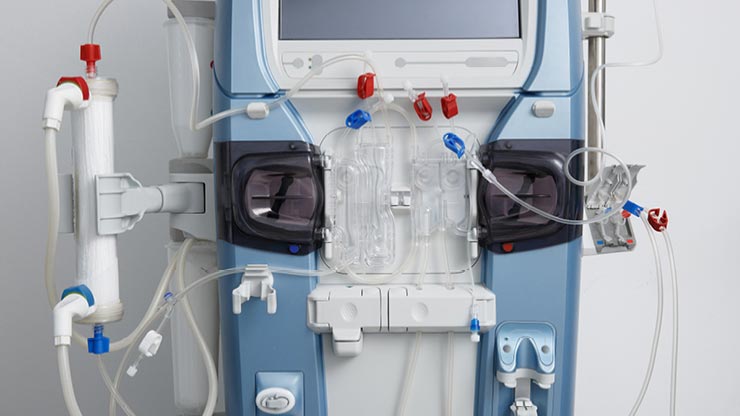
Medical grade SEPTON™ and HYBRAR™
The HSBC-type medical grade TPEs from Kuraray have many positive properties. For example, they do not have the critical drawbacks of PVC and are cheaper than silicone. They are also readily recyclable. Products made from medical grade TPEs are sterilizable in various methods and contain only very small quantities of extractables/leechables. Moreover, TPEs have excellent density.
The products in the HYBRAR™ 7000-series, namely HYBRAR™ 7125F (V-SEPS) and HYBRAR™ 7311F (V-SEEPS), are an extremely robust, transparent and flexible solution for medical films and tubing. HYBRAR™ is very easy to process thanks to its good compatibility with polypropylene and high affinity to polyolefins. Compounds produced from HYBRAR™ and polypropylene have high tensile strength and excellent impact resistance. Compared with other elastomers, the polymer structure of HYBRAR™ ensures relatively good permeability to oxygen and moisture.
Medical grade TPEs from Kuraray
- SEPTON™ 2004F
- HYBRAR™ 7125F
- HYBRAR™ 7311F
Features and benefits
- Affordable Solution for soft-touch applications
- Good processability
- High transparency
- Latex protein-free
- Plasticizer-free components
- Phthalate-free
Applications
- Alternative to PVC
- Alternative to silicone and natural rubber
- Medical films
- Medical tubing
- IV bags
- Catheter bags
- Elastic nonwovens
- Plasters
- Orthopedic gels
High level of safety
Medical products have to meet high standards of safety and reliability. The biocompatibility of selected HSBC-type medical grade TPEs from Kuraray is certified as conforming to ISO 10933, including ISO 10993-4 (Tests for interactions with blood), -5 (Tests for cyclotoxicity), -10 (Tests for skin sensitization) and -11 (Tests for systemic toxicity). Medical grade TPEs from Kuraray also meet the requirements of USP class ˂87˃ (In-Vitro Biological Reactivity – Cytotoxicity Testing) and USP class ˂88˃ (In-Vivo Biological Reactivity – Class I–VI Testing). Moreover, they are FDA-compliant. They are also tested in accordance with ASTM F2148.
The HSBC-type medical grade TPEs from Kuraray are very safe. Products manufactured from these materials can be used wherever hygiene is particularly important. SEPTON™ and HYBRAR™ do not contain phthalates or other plasticizers and only contain extremely small quantities of extractables and leechables. Since they are latex protein-free, they do not expose patients to a risk of allergies. Medical grade TPEs can be sterilized using all common methods, including e-beam, gamma, ethylene oxide and autoclave methods.
Several SEPTON™ and HYBRAR™ grades are produced without using materials derived from animal origin.
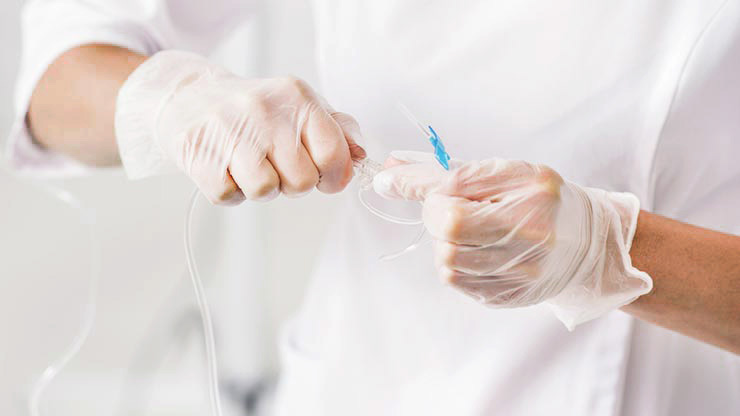
High flexibility and quality
The flexibility and rubber-like elasticity of hydrogenated styrenic block co-polymers from Kuraray allow a wide range of applications and considerable design freedom. The medical grade TPEs from Kuraray can be processed using a variety of methods. That means injection molding, blow molding, extruding and co-extruding can be used for cost-efficient production of injected parts as well as films, sheets, profiles and tubes. Thanks to problem-free scalability, they are suitable for both mass production and prototyping.
SEPTON™ and HYBRAR™ are recyclable, transparent, clear and fully colorable. The HSBC-type medical grade TPEs from Kuraray are heat-resistant, compression-resistant and kink-resistant. They also have good tensile stretch and produce strong seals in overmolding. High functional TPEs dissipate electrostatic charges. They are x-ray opaque and have lower frictional force.
Alternative to PVC and silicone
The HSBC-type TPEs from Kuraray have key benefits compared with alternative materials. Unlike PVC – one of today’s most common plastics –, medical grade TPEs do not contain phthalate plasticizers. They are increasingly being used as an alternative to PVC because both customers and patients want environmentally friendly alternatives to be used in the manufacture of medical devices.
Furthermore, – unlike from PVC – the production of TPEs does not produce dioxins, which are carcinogenic, disrupt hormone balance and accumulate in fatty tissue of humans and animals. Nor is there another problem that occurs with PVC, the release of chlorine and dioxins during use and incineration. Such burdens on the environment and human health do not occur with TPEs.
TPEs are also becoming increasingly attractive as an alternative to silicone: Medical grade TPEs are easier to produce and store than liquid silicone and the production process is more robust.
Two other aspects should be considered when looking at TPE vs. silicone. One benefit compared with silicones is that elastomers may be easier to source than silicone due to the restricted availability of siloxane. Manufacturers of medical devices are also concerned about the threatened closure of ethylene oxide sterilization plants, as has already occurred in the USA.
Key applications of medical grade TPEs
Films and IV bags
Kuraray has styrene block copolymers with excellent softness and elasticity, which can be used as dry blend in film production or extrusion. In view of their excellent compatibility with polyolefins and polypropylene (PP), these materials allow greater flexibility in the design of film properties than is generally possible when using commercial polyolefin and PP resins on their own.
Tubes
HYBRAR™ is an extremely robust, transparent and flexible product for medical tubes and is more environment-friendly than PVC. HYBRAR™ has good compatibility with polypropylene and high affinity to polyolefins, making it very easy to process.
HYBRAR™ blends with PP offer good kink resistance and are solvent bondable. Good kink resistance is important for applications where tubing is used to infuse fluids into the body. If medical tubes are bent into tight radius, they must be sufficiently kink-resistant to avoid potentially life-threatening consequences. Tubes with injection-molded components are usually connected by solvent bonding. When using appropriate solvents, high bond strength can be achieved with HYBRAR™.
Adhesives
Various products in the SEPTON™ line are biocompatible and safe for skin contact. Therefore, they are an excellent raw material choice to produce adhesives for plasters. Thanks to their balanced adhesive and cohesive properties, medical adhesives containing SEPTON™ products have good release properties, which increases wear comfort, without causing allergies.
Soft parts
Kuraray’s portfolio also includes HSBCs for soft parts in medical applications. They are used, for example, to produce syringe stoppers and medical tube connectors, as well as self-sealing applications in containers for vaccine and medicine vials.
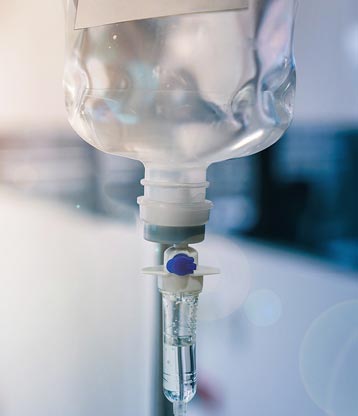
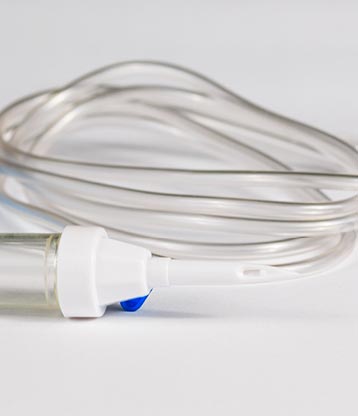
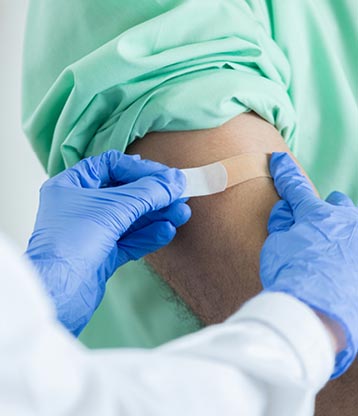
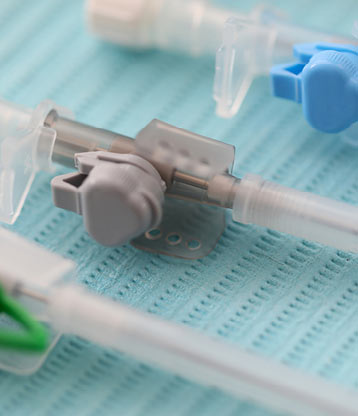
Disclaimer
Precautions should be taken in handling and storage. Please refer to the appropriate Safety Data Sheet for further safety information. In using SEPTON™ and HYBRAR™, please confirm related laws and regulations, and examine its safety and suitability for the application.
For medical, health care and food contact applications, please contact your Kuraray representative for specific information. Even so, users must conduct their own assessment, revisions, registrations as well rely on their own technical and legal judgment to establish the safety and efficacy of their compound and/or end product with SEPTON™ and HYBRAR™ for any application. SEPTON™ and HYBRAR™ should not be used in any devices or materials intended for implantation in the human body. Nothing contained herein constitutes a license to practice under any patent and it should not be construed as an inducement to infringe any patent and the user is advised to take appropriate steps to be sure that any proposed use of the product will not result in patent infringement.
Further TPEs for medical applications
Kuraray markets various series of SEPTON™ products – SEPTON™ 2000-series (SEPS), SEPTON™ 4000-series (SEEPS) and SEPTON™ 8000-series (SEBS) – that meet the highest quality standards for applications such as medical films, adhesives and tubing. Certain products in the SEPTON™ line, such as the SEPTON™ 2000-series and SEPTON™ 4000-series, can be used to produce adhesives for plasters. Properties such as low melt viscosity, very good low-temperature performance and excellent processability with low shear rates give the SEPTON™ 4000-series improved processing properties and result in soft, flexible compounds over a wide temperature range.
Kuraray’s portfolio of hydrogenated styrenic block co-polymers includes various materials that are suitable for use in orthopedic gels. The SEPTON™ 4000-series (SEEPS) and the SEPTON™ J-series give orthopedic gels the required stability as well as ultra-soft properties so they have a natural skin-like feeling. The low specific weight and high tear resistance of these elastomers make them a good alternative to silicone in many applications.
SEPTON™ J-series and SEPTON™ 4000-series were developed for high-performance products where lasting stability and a low compression set are essential. Applications include prosthetic liners and orthopedic bandages. The excellent shock absorbency and non-allergenic properties of these products meet the demanding standards of this sector.
Various SEPTON™ products are suitable for use in adhesives for plasters. Examples the SEPTON™ 8000-series and the SEPTON™ 4000-series, which are an excellent choice for solutions requiring ultra-high purity products.
Contact
